- Two Thanksgiving Thoughts for the ACAPosted 10 years ago
- Shop til you Drop at the Healthcare Marketplace Part 2: Frustration!Posted 10 years ago
- An Early Casualty in the Affordable Care FightPosted 10 years ago
- Some Good News for a ChangePosted 10 years ago
Classic Movie Review: “The Hospital” (1971) written by Paddy Chayevsky (on his way to “Network”) and directed by Arthur Hiller
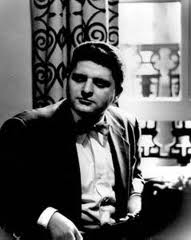
 Dan Walker on Film
Dan Walker on Film
The Hospital (1971)
Director:
Arthur Hiller (Silver Streak, Making Love)
Writer:
Paddy Chayevsky (Oscars for this movie, Marty and Network)
Cast:
George C. Scott (The Hustler, Dr. Strangelove, The Flim-Flam Man, he didn’t show up to accept his Best Actor Oscar for Patton, his defining role)
Diana Rigg (On Her Majesty’s Secret Service and she was Emma Peel in TV’s The Avengers)
Barnard Hughes (Midnight Cowboy, Cold Turkey, Tron)
Nancy Marchand (TV’s Lou Grant and The Sopranos)
Running Time: 103 minutes
For whatever reason, I had never come across this movie until someone mentioned that Paddy Chayevsky wrote and won an Oscar for the screenplay. Being a huge fan of “Network”, for which he also won an Oscar, I couldn’t wait to see another work of his. That’s exactly what I saw, another movie like “Network”; not necessarily a different work by the writer.
“There were so many parallels and similarities between this film and “Network” I was tempted to write them all down on a pad of paper but I wanted to focus on the movie. ” Now I feel like jotting notes would have been a more enjoyable and less infuriating experience, although I would have accelerated my way into arthritis (knock on wood).
The criticisms about the parallels are in a review of “The Hospital” but are implicitly more directed at “Network” because it came five years later.
 Some of the parallels/similarities:
Some of the parallels/similarities:
– The titles are the settings of the movies. A hospital and a TV network.
– Both movies open with narration (by someone not in the movie) to catch us up on relevant events and begin the story. The first word of dialogue comes so quickly after the last word of the narration they could be part of the same sentence. In “The Hospital”, the narration is provided by Paddy Chayevsky himself. When you hear his voice, you can understand why he didn’t do the narration for “Network.”
– They’re both about dramatic, dysfunctional and flawed/corrupt inner workings of their respective settings.
– The lead character is embittered and suicidal and states that all he had left in the world is his job.
– The opening scene where a nurse has to repeat that a doctor was dead in a room because the other nurse didn’t believe what she was hearing was like the scene in Network when Howard Beale first says on-air that he’s going to commit suicide. The people in the control room repeat it to each other because they don’t believe what they heard or didn’t hear it, even though it’s their jobs to pay attention to what’s on-air. When characters have to repeat an event to other characters because the others are in disbelief, it emphasizes the intensity of the incident and when it happens at the beginning of a movie, as it does in both “The Hospital” and “The Network”, it sets the tone for the rest of the movie. What seems like a clever plot point once comes across as gimmicky the second time. This perspective pretty much carries over to my other points:
– The love affair between an older male lead (Scott/Holden) and a younger female lead (Rigg/Dunaway) that gives the previously-distraught older man something to live for.
– – Barbara (Rigg) states to Dr. Bock (Scott) after their first night of lovemaking, “one time you even opened the window and bellowed it (his love for her) out into the street.” Think about the signature scene in “Network”. I wonder if Chayevsky himself ever yelled anything out a window like that, good or bad.
– Rigg’s delivery, cadence and inflections were the same as that of Laureen Hobbs (Marlene Warfield) in “Network”. In both cases what I heard was less a convincing character’s perspective and more a dissemination of lines given to actors. These lines go on far too long and with too much smugness. (I think of this as the Dennis Miller/Murphy Brown syndrome.) If anyone really talked to me like that, I’d have to stop at a nice clean gas station halfway through the conversation.
 – A very contemporary energy is injected into both films by the inclusion of primarily black-led (complete with military garb and berets) activist groups, one more organized and militant than the other. Both have the word “Liberation” in their names.
– A very contemporary energy is injected into both films by the inclusion of primarily black-led (complete with military garb and berets) activist groups, one more organized and militant than the other. Both have the word “Liberation” in their names.
– The way Ned Beatty’s character holds Howard Beale in a trance and tells him what to do in “Network” is exactly what happened between the – spoiler alert – killer and the guy that told him why he must kill in “The Hospital”. In both cases the voice is perceived by the recipient as Messianic.
– Both movies end in a death vital to the story, one more directly impactful than the other.
Now I really wish I had written down all the other parallels so I could state my case more strongly. I really wanted to like this movie.
In the same way the visuals of ‘Star Wars” would have been less revelatory and impressive had I seen “2001: A Space Odyssey” first, the story and dialogue of “Network” would have seemed less novel had I seen “The Hospital” first, but only a little. Chayefsky really should have given back the Oscar for “The Hospital” once he had the one for “Network” – one of the most deserving screenplay Oscars ever — in hand. If anyone knows of a writer who won screenplay Oscars for such similar movies, please let me know. Since it worked twice for him, Chayefsky could have followed the same formula and won another Oscar for writing “DMV Office”. I haven’t seen “Marty” in about 20 years but I’m afraid I’ll ruin it for myself now if I watch it again.
I was so distracted noticing the parallels “The Hospital” had with “Network” I didn’t find the story engaging. What I did enjoy, however, was seeing actors I recognized in supporting roles: Richard Dysart, Nancy Marchand, Katherine Helmond, Dennis Dugan (I didn’t say they had to be good or famous, I just said I recognized them), Stockard Channing, Frances Sternhagen. I didn’t realize Christopher Guest was in the movie until I read the full cast listing.
I usually try to avoid giving away much of a movie’s storyline but in this case all you need to do is know “Network” and you get the gist. Just trade out Finch/Holden for Scott, a TV network for a hospital and Warfield/Dunaway for Rigg and you know all you really need to know. I covered some of the plot in my comparisons.
I usually try to avoid giving away much of a movie’s storyline but in this case all you need to do is know “Network” and you get the gist. Just trade out Finch/Holden for Scott, a TV network for a hospital and Warfield/Dunaway for Rigg and you know all you really need to know. I covered some of the plot in my comparisons.
This movie is substantially better in absolute terms than it is relative to “Network. ” It really is a good, smart, biting movie and Scott is typically commanding.* The problem is “Network” is too significant a film to ignore or not remember when you watch “The Hospital”, which is very much a warm-up/stepping stone/precursor to “Network.”** Everything about “Network” is better than “The Hospital.” A more interesting and relevant setting, better script and director (Sidney Lumet,) stronger cast and powerhouse performances by everyone.
You don’t even think of Beatrice Straight when “Network” is referenced, yet she won a Best Supporting Oscar for her brief but riveting performance.*** Ned Beatty even got an Oscar nomination, although I don’t know why he got it over Robert Duvall’s performance. I watch “Network” several times a year. It’s a nonstop rush every time and, among many other things, it has one of my all-time favorite final shots.
Where this review started with a very critical, resentful perspective on the similarities of the two movies, my opinion actually evolved as/because I wrote it. My appreciation for both movies grew and I look forward to repeated viewings of “The Hospital” into perpetuity the same way I do with “Network.”****
Dan
** This relationship between the two movies is similar to the way “That Girl” was a warm-up to “The Mary Tyler Moore Show” for James L. Brooks. In both comparisons, the latter of the two efforts has rightfully attained legendary status, so being considered a warm-up etc. for “Network” and“The Mary Tyler Moore Show” isn’t necessarily a bad thing. Quite the opposite, the brilliance of the successors wouldn’t have been achieved without the existence of the predecessors.
*** I’m sure I’m repeating myself but I think Straight in “Network” and Dame Judi Dench in “Shakespeare in Love” may hold the record for the shortest amount of screen time for Oscar-winning performances. They really won their Oscars in different ways, however. Straight was delivering lines from God channeled through Chayevsky while it was Dench’s presence (and Sandy Powell’s Oscar-winning costume design) that won her Academy Award. Tom Stoppard’s Oscar-winning dialogue didn’t hurt. Plus, I think Hollywood felt bad about giving her Best Actress Oscar for “Her Majesty, Mrs. Brown” to Julia Roberts for “Erin Brockovich”. .
**** While my opinion of the movie actually changed as I wrote this review, rather than re-write it, I thought it was much more accurate, interesting and revealing to show how my perception/perspective of “The Hospital” evolved.
My viewing of “The Hospital” left me conflicted enough that I saw it a second time a few days later. Knowing what to expect and accepting it for what it was, I watched it with the parking brake off, let it play out in front of me and loved it. Actually I applauded at the end. Similarities to “Network” or not, Paddy Chayevsky knows how to start, end, fill and dialogue a movie, and all in a very smart, energetic, relevant, edgy, darkly comic and massively entertaining way.
Yeah, he absolutely deserved both Oscars.

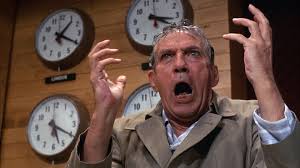
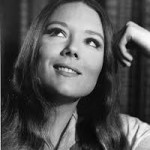

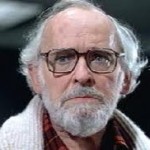
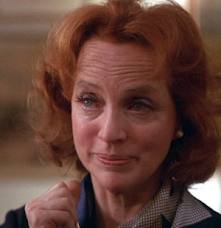
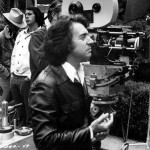



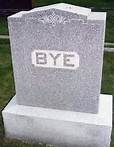
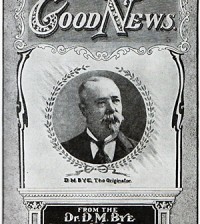
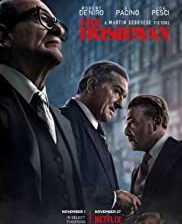

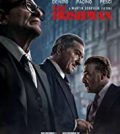
I have never seen this movie but now I am interested in seeing it to also see the parallels with Network.
J9hn
For folks who may be in the San Francisco Bay Area during May (2013), the Mechanics Institute Library will be screening 5 Chayefsky films, one each Friday evening, beginning with ‘The Americanization of Emily’ this Friday May 3rd, and ending with ‘The Hospital’ on Friday May 31st:
Cinemalit – Paddy Chayefsky: Scenes from American Lives:
http://www.milibrary.org/events
Thanks for sharing, Edward. I’m sorry I won’t be there for those screenings, although now I’m trying to rationalize a reason to visit a Bay Area this month. Dan
I found Dan’s review absolutely fascinating. I saw both pictures (Hospital and Network) when they came out and did not realize how much Chayevsky was recycling his own material. I did notice he had a very theatrical style that turned the films into polemics, which was fine with me.
I actually warmed more to The Hospital over time because I was a new doctor in those days. I have used it as a discussion point with medical groups to explore the topic of how much a hospital has an obligation to the community in which it is located and it holds up. My only real criticism with it, then and now, is that you didn’t need to have a deliberate plot behind the scenes to explain what is going on. The chaos of a very busy urban hospital scrambling to keep up is reason enough. In 2000 the Institute of Medicine started a campaign to try to cut down on the number of medical errors. To date their success has been modest at best.
George C Scott is totally believable as the burnt-out MD as he dominates the film. (Network is more of an ensemble rant.) The Dr. Wellbecks still exist. Anyone who thinks we don’t need reform in this country must see this film.
Dan’s analysis makes interesting reading.